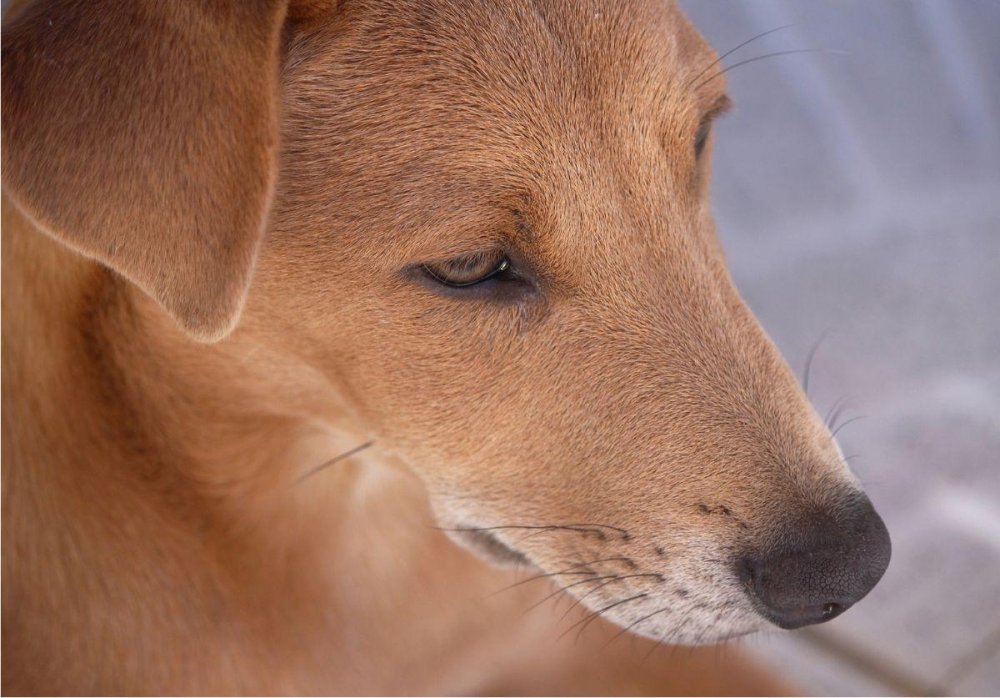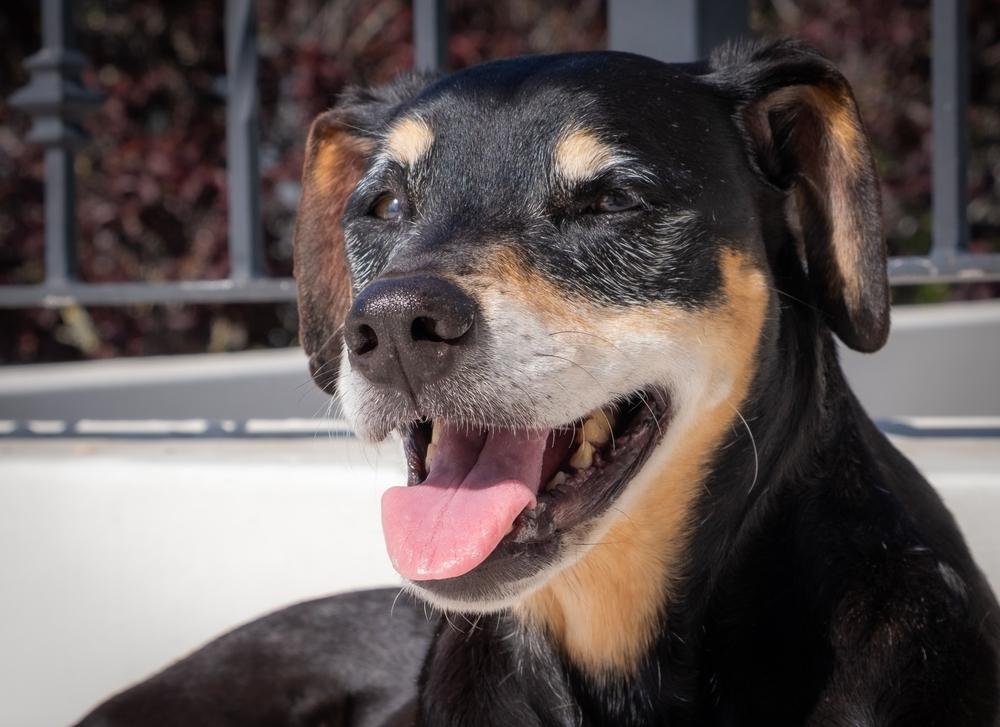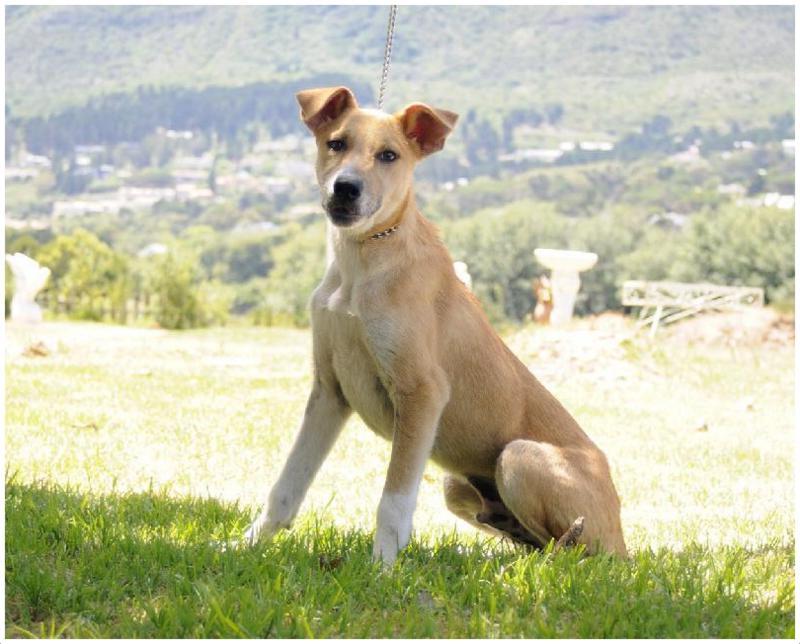- Breed Category: Pariah dog
- Country of Origin: South Africa
- Average Height: 50-60 cm (20-24 in)
- Average Weight: 25-45 kg (55-99 lbs)
- Average Life Span: 10-12 years
- Grooming Requirements: Low, occasional brushing
- Exercise Requirements: High, needs daily exercise
- Coat Type: Short, dense
- Coat Color Variations: Various, often earthy tones
- Shedding Level: Moderate
- Ear Type: Erect or semi-erect
- Tail Type: Curved, bushy
- Temperament: Loyal, intelligent, alert
- Intelligence Level: High
- Barking Tendency: Low to moderate
- Compatibility with Children: Good, if socialised early
- Compatibility with Other Pets: Generally good
- Training Ease: Moderate, requires consistency
- Common Health Issues: Generally healthy
- Dietary Needs: Balanced, high-quality diet
- Energy Level: High
- Drooling Tendency: Low
- Sensitivity to Weather: Tolerant of heat
- Overall Maintenance Level: Low
- Original Purpose: Hunting, herding, guarding
- Apartment Friendly: Not ideal, needs space
- Best Suited For: Active families, rural settings
- Cost of Ownership: Moderate
- Unique Traits: Adaptable, resilient
- Cultural Significance: Integral to African communities
The Africanis dog breed is a fascinating subject for any dog lover. Known for their resilience and adaptability, these dogs have a rich history that dates back thousands of years. They are not just pets; they are a part of Africa’s cultural heritage.
Originating from the southern regions of Africa, the Africanis is believed to have evolved naturally, adapting to the harsh environments of the continent. This breed is known for its intelligence, loyalty, and strong survival instincts.
“The Africanis is not just a dog; it’s a living piece of history, embodying the spirit of Africa.”
– Dr. Johan Gallant, Africanis Society of Southern Africa
This article aims to inform you about the Africanis breed’s unique characteristics, historical background, and care requirements.
Early Development and Cultural Significance of the Africanis Dog Breed

Early Development of the Breed
The Africanis dog has a history that stretches back thousands of years. These dogs evolved naturally in the southern regions of Africa, adapting to the diverse and often challenging environments. Their development was not influenced by selective breeding, which makes them unique. Instead, they are a product of natural selection, resulting in a breed that is both resilient and resourceful.
Role in African Communities and Traditional Uses
In many African communities, the Africanis has been more than just a companion. They have played vital roles in daily life, from herding livestock to guarding homes. Their keen senses and adaptability made them invaluable in traditional settings, where they were often relied upon for protection and assistance in hunting.
Key Historical Figures and Cultural Significance
Figures like Dr. Johan Gallant have highlighted the cultural importance of the Africanis, emphasising its role as a living piece of African history. These dogs are not just animals; they are symbols of the continent’s rich heritage and resilience.
Physical Characteristics
The Africanis is known for its athletic build and agility. They typically have a short coat, which can vary in colour, and a lean, muscular frame. Their physical traits are a testament to their ability to thrive in diverse environments, making them both hardy and versatile.
Appearance and Unique Physical Traits
The Africanis is a medium-sized dog, typically weighing between 25 to 45 kilograms. Their coat is short and can come in a variety of colours, including shades of brown, black, and brindle. Some may have distinctive markings, like a white chest or paws, adding to their unique charm. Their lean, muscular build is a testament to their agility and endurance, traits that have been honed over centuries of survival in the wild.
These dogs are incredibly agile, capable of navigating rough terrains with ease. Their endurance is impressive, allowing them to keep up with the demands of herding and hunting. This physical prowess is matched by their keen senses, making them excellent watchdogs.
Temperament and Behaviour
Africanis dogs are known for their intelligence and loyalty. They form strong bonds with their families and are often protective, making them excellent companions. While they are generally friendly, they can be reserved with strangers, a trait that makes them effective guardians. Their behaviour is adaptable, allowing them to fit into various lifestyles, whether in rural or urban settings.
Personality Traits and Suitability as a Family Pet

Typical Personality Traits
The Africanis is a dog that embodies loyalty, intelligence, and adaptability. These traits make them not only reliable companions but also quick learners. Their intelligence allows them to understand and respond to commands effectively, while their loyalty ensures they form strong bonds with their families. Adaptability is another key trait, enabling them to thrive in various environments, from bustling cities to quiet rural areas.
Suitability as a Family Pet and Working Dog
As a family pet, the Africanis is a fantastic choice. Their protective nature makes them excellent watchdogs, while their friendly disposition ensures they get along well with family members. They are also highly suitable as working dogs, thanks to their endurance and agility. Whether herding livestock or accompanying you on a long hike, they are up for the task.
Interaction with Children and Other Animals
Africanis dogs are generally good with children, displaying patience and gentleness. They can be playful and enjoy engaging in activities with kids. When it comes to other animals, they usually get along well, especially if socialised from a young age. Their adaptable nature helps them integrate smoothly into multi-pet households.
Training and Exercise Needs
Training an Africanis is a rewarding experience due to their intelligence and eagerness to please. Consistent, positive reinforcement methods work best. They require regular exercise to keep them healthy and happy, so daily walks or play sessions are essential. Their energy levels mean they thrive in active households where they can participate in various activities.
Training, Exercise, and Health of the Africanis Dog Breed

Importance of Early Training and Socialisation
Getting an Africanis started with training and socialisation early on is crucial. These dogs are naturally intelligent and eager to learn, so introducing them to various environments, people, and other animals helps them grow into well-rounded adults. Early exposure reduces the likelihood of behavioural issues and enhances their adaptability.
Recommended Training Techniques
When it comes to training, positive reinforcement is the way to go. Reward-based methods, like treats and praise, encourage good behaviour and strengthen the bond between you and your dog. Consistency is key, so regular training sessions will yield the best results.
Daily Exercise Requirements and Activities They Enjoy
Africanis dogs are active and need daily exercise to stay healthy and happy. They love activities like long walks, runs, and playtime in a secure yard. Engaging them in games like fetch or agility exercises can also be a great way to burn off energy and keep them mentally stimulated.
Health and Lifespan
Generally healthy, Africanis dogs benefit from regular vet check-ups to catch any potential issues early. With proper care, they can live up to 12 to 14 years. Their robust nature, a result of natural selection, often means fewer genetic health problems compared to other breeds.
Health and Care of the Africanis Dog Breed
Common Health Issues
Africanis dogs are generally robust, thanks to their natural evolution. However, like any breed, they can face some health issues. Hip dysplasia and skin allergies are occasionally seen, but these are not as prevalent as in many other breeds. Regular vet visits can help catch any potential problems early.
Average Lifespan and Health Tips
With good care, Africanis dogs can live between 12 to 14 years. To keep them healthy, ensure they have a balanced diet, regular exercise, and mental stimulation. Fresh water should always be available, and maintaining a healthy weight is crucial to avoid joint issues.
Preventative Care Recommendations
Preventative care is key to a long, healthy life. Regular vaccinations, flea and tick prevention, and dental care are essential. Routine check-ups with the vet will help monitor their overall health and catch any issues early.
Grooming and Maintenance
The Africanis has a short coat that requires minimal grooming. A weekly brush will help remove loose hair and keep their coat shiny. Regular nail trimming and ear cleaning are also important to prevent infections. Bathing should be done as needed, but not too frequently to avoid skin irritation.
Coat Care and Grooming for the Africanis Dog Breed

Coat Care and Grooming Routines
The Africanis has a short, low-maintenance coat, making grooming a breeze. A weekly brush is usually enough to keep their coat looking its best. This not only helps remove loose hair but also promotes healthy skin by distributing natural oils. Regular grooming sessions are a great opportunity to check for any skin issues or parasites.
Shedding and Seasonal Grooming Tips
While the Africanis doesn’t shed excessively, you might notice a bit more hair during seasonal changes. During these times, brushing a couple of times a week can help manage shedding and keep your home cleaner. A good quality brush designed for short-haired dogs will make the task easier and more effective.
Diet and Nutrition
A balanced diet is crucial for the Africanis to maintain their health and energy levels. High-quality dog food, rich in protein and essential nutrients, supports their active lifestyle. Fresh water should always be available, and portion control is important to prevent obesity. Consult your vet for specific dietary recommendations tailored to your dog’s age, weight, and activity level.
Nutritional Needs and Feeding Guidelines for the Africanis Dog Breed

Nutritional Needs for Optimal Health
To keep an Africanis in top shape, focus on a diet rich in protein and essential nutrients. These dogs thrive on high-quality dog food that supports their active lifestyle. Look for options with real meat as the first ingredient and avoid fillers like corn and soy.
Foods to Include and Avoid
Include lean meats, fish, and vegetables in their diet. Avoid foods high in artificial additives, sugars, and unhealthy fats. Some human foods, like chocolate and onions, are toxic to dogs and should be kept out of reach.
Feeding Schedules and Portion Recommendations
Feed your Africanis twice a day, once in the morning and once in the evening. Portion sizes depend on their age, weight, and activity level, so consult your vet for tailored advice. Overfeeding can lead to obesity, so keep an eye on their weight.
Fun Facts and Trivia
Did you know the Africanis is often referred to as a “landrace” dog? This means they evolved naturally without human intervention, making them incredibly resilient. Their history is as rich as their diet should be!
Interesting Tidbits and Famous Africanis Dogs
Interesting Tidbits about the Africanis Breed
The Africanis is a breed that has naturally evolved over thousands of years, making it one of the most resilient and adaptable dogs around. They are often referred to as “landrace” dogs, a term that highlights their natural development without human intervention. This unique evolution has equipped them with strong survival instincts and a robust constitution, allowing them to thrive in various environments.
One fascinating aspect of the Africanis is their role in traditional African societies. They have been used for herding, hunting, and guarding, showcasing their versatility and intelligence. Their ability to adapt to different tasks and environments is a testament to their natural selection over centuries.
Famous Africanis Dogs in Media or History
While the Africanis may not be as widely recognised in mainstream media as some other breeds, they hold a special place in African history and culture. These dogs have been celebrated in various African folklore and stories, often depicted as loyal companions and protectors. Their presence in these tales underscores their importance in the daily lives of many African communities.
In recent years, efforts by organisations like the Africanis Society of Southern Africa have brought more attention to this remarkable breed, highlighting their cultural significance and promoting their preservation as a living piece of African heritage.
Final Thoughts

The Africanis is a testament to natural resilience and adaptability. This breed embodies the spirit of Africa, thriving in diverse environments. Their journey from ancient times to modern-day companions highlights their intelligence and loyalty. As guardians of African heritage, Africanis dogs offer both historical significance and practical companionship. Embrace the legacy of the Africanis by considering them as a loyal addition to your family.
